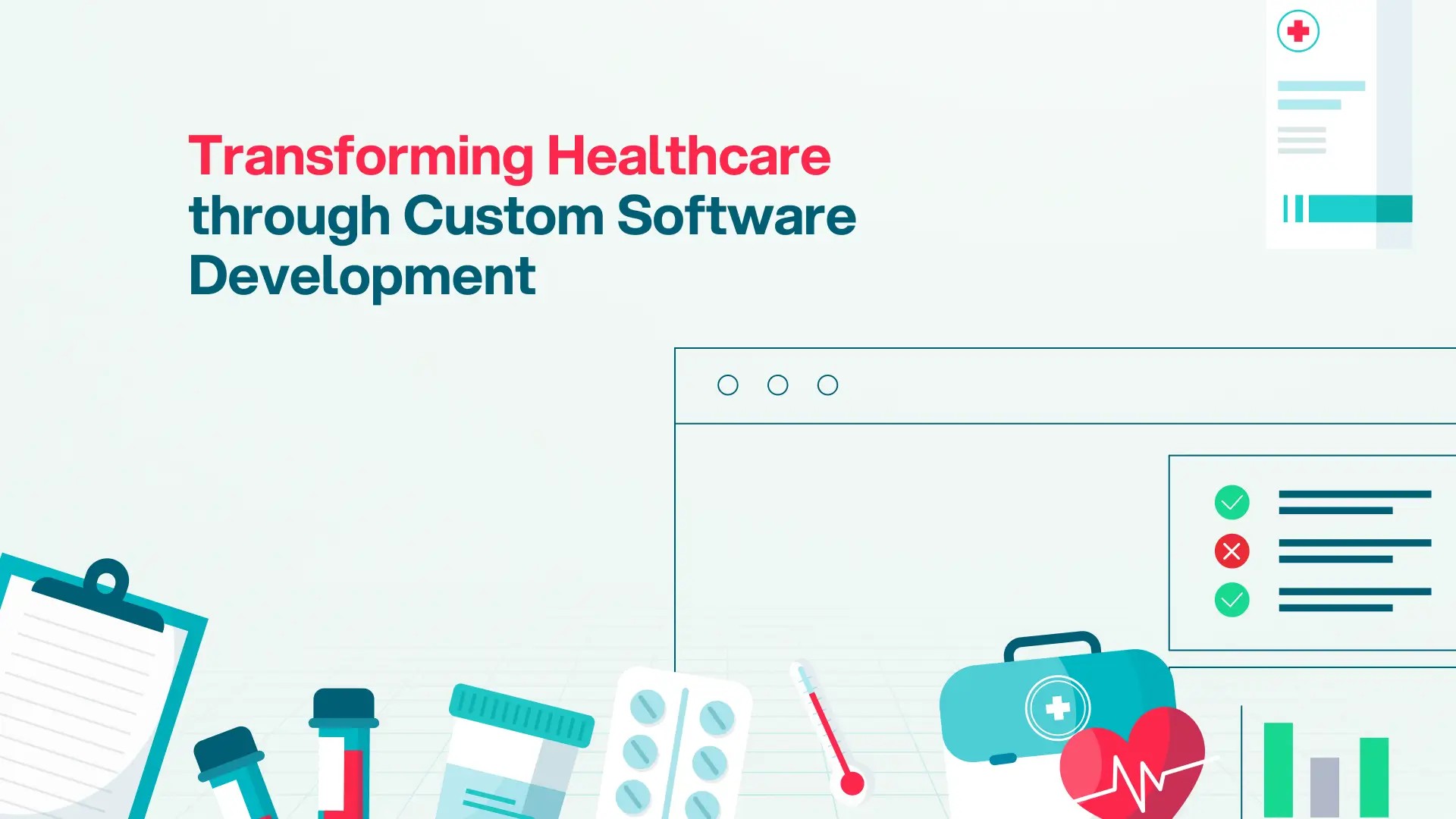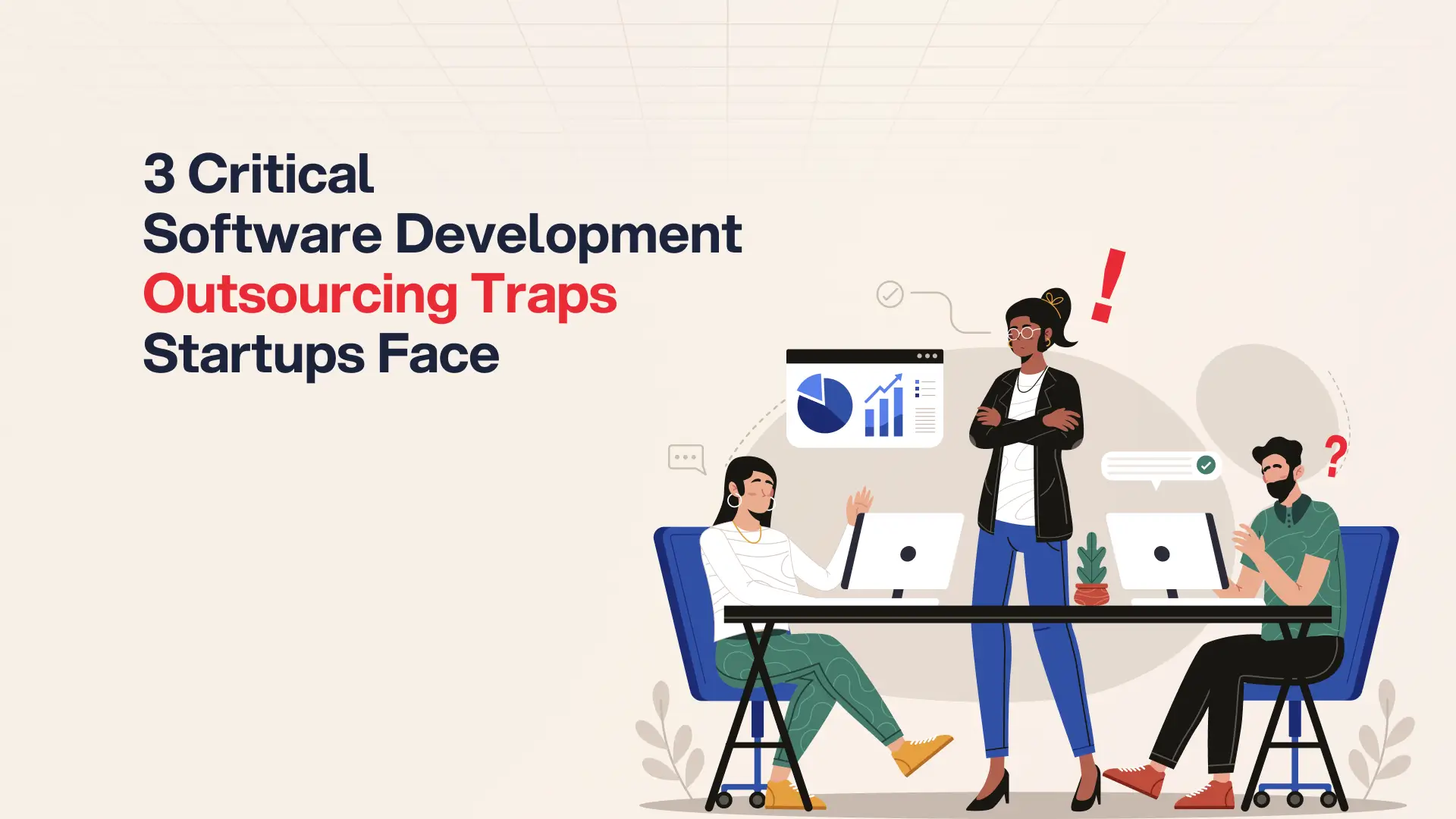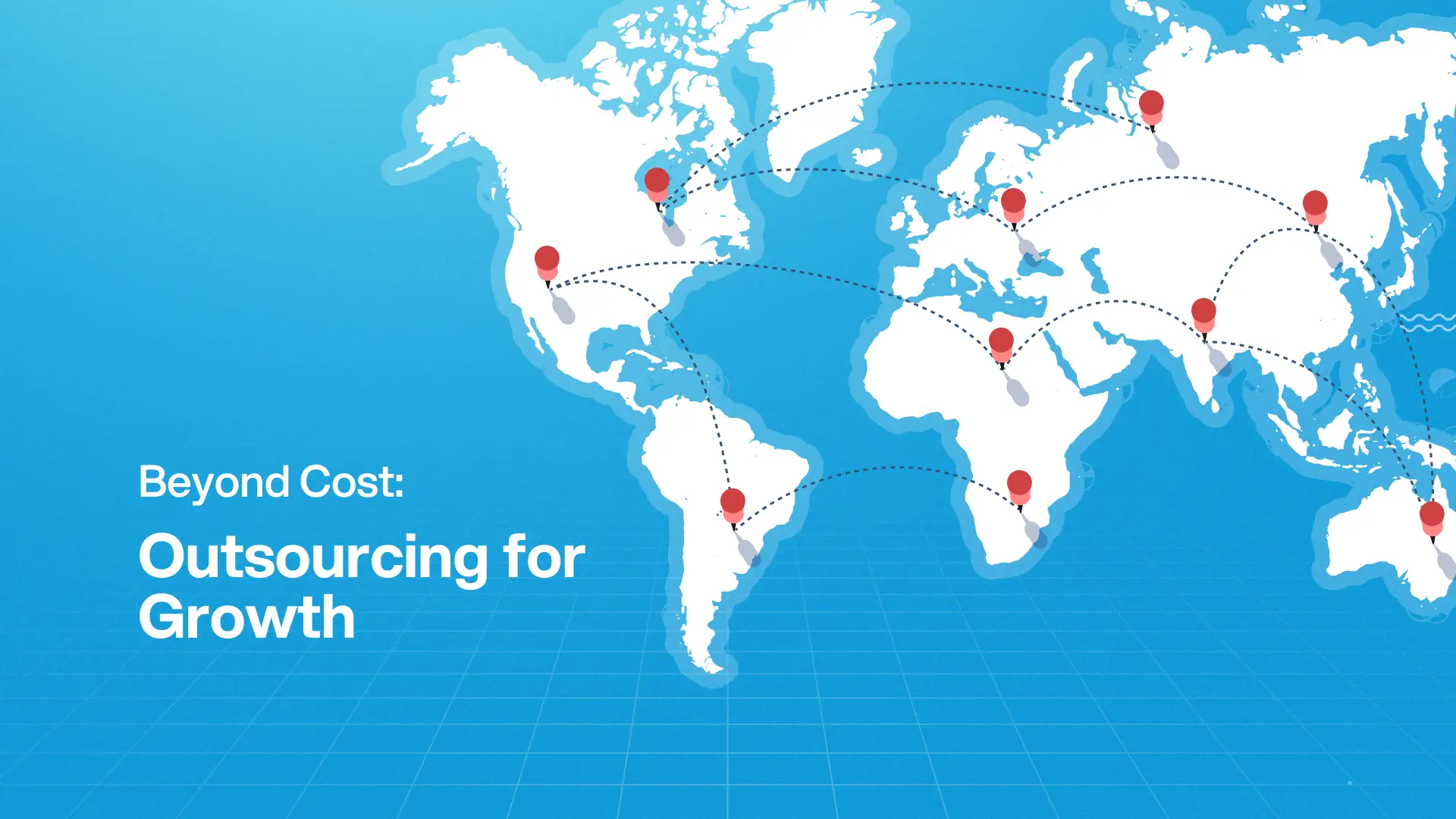Post Activity
 277
277
Table of Content
Share This Post
Table of Content
As global organizations accelerate digital transformation, the need for reliable, agile, and cost-effective software development partners is greater than ever. While countries like India and Eastern Europe continue to dominate the conversation, Colombia is gaining ground fast as one of the best countries to outsource software development. With a growing IT services market, a highly scalable talent pool, and time zone alignment with North America, Colombia is positioned as a standout nearshore destination.
Outsourcing software development in Colombia is no longer a speculative move. It is a strategic investment supported by infrastructure, workforce readiness, and increasing global confidence. Whether the goal is to develop a Minimum Viable Product, scale engineering capacity, or reduce outsourcing costs, Colombia offers a high-performance environment for digital execution.
Market Momentum
Colombia’s IT services market was valued at $8.2 billion in 2024 and is forecasted to reach $15.7 billion by 2032, growing at a compound annual growth rate (CAGR) of 8.5%. These numbers reflect more than just market expansion—they signal increasing global trust in Colombia’s ability to deliver enterprise-grade IT services and custom software.
The economy of Colombia at a glance
| Gross Domestic Product | ||
| Annual GDP | USD 364 Billion (2023) | |
| GDP Per Capita | USD 6,947 (2023) | |
| Income Category | Upper-middle Income (2023) | |
| People | ||
| Population | 53.2 Million (2025) | |
| Literacy Rate | 96% (2017) | |
| EF English Proficiency Index | Low Proficiency (2024) | |
| IT Sector | ||
| IT Services Market Size | USD 2.2 Billion (2025) | |
| IT Outsourcing Market Size | USD 755 Million (2025) | |
| Registered Software Companies | 400+ (2024) | |
| Business Environment | ||
| Ease of Doing Business | Score: 70/100 | Rank: 67 (2020) | |
| Political Stability Indicator | Percentile Rank: 19 (2023) | |
| Corruption Perceptions Index | Score: 40/100 | Rank: 87/180 (2023) | |
Tech activity now accounts for 24.2% of the country’s manufacturing GDP. Cities like Bogotá and Medellín are emerging as digital strongholds, while second-tier cities like Cali and Barranquilla are capturing attention for their lower labor costs and rising developer capacity.
The nation’s digital transformation journey is supported by robust programs like “Vive Digital” and the National Digital Strategy 2023–2026, which collectively promote internet access, cloud adoption, and digital innovation across both public and private sectors.
Discover a Smarter Outsourcing Destination
Access Colombia’s curated data to support your outsourcing strategy with clarity and control.
Competitive Advantages
Time Zone Overlap
One of Colombia’s strongest draws is its real-time collaboration capabilities. The country operates on Colombia Time (UTC -5), which aligns closely with U.S. Eastern Time and overlaps partially with Central European Time. For companies based in North America or Western Europe, this alignment allows seamless daily interaction, speeding up feedback loops, bug fixes, sprint reviews, and team syncs.
Value-for-money
Another core benefit is cost efficiency. Software development rates in Colombia are typically 40% to 50% lower than in the U.S. or Canada. With a cost of living that enables favorable labor costs without compromising living standards, Colombia provides a strong return on innovation and talent investment.
Reliable legal system
And then there’s the legal environment. Colombia has implemented strong data protection through Law 1581 of 2012, which governs personal data usage. While not yet part of the EU’s adequacy list, Colombian outsourcing firms commonly use Standard Contractual Clauses (SCCs) to meet GDPR requirements. Most also adopt international security certifications such as SOC 2 and ISO 27001, addressing concerns around data privacy and intellectual property protection.
Infrastructure and Digital Strategy
National Tech Strategy
Colombia is positioning itself as a digital leader in Latin America. With a Digital Infrastructure Index score of 0.12, the country is in the early stages of development but showing consistent growth. Initiatives like CONPES 4144 and the National Digital Strategy are driving adoption of cloud computing, AI-driven personalization, and mobile app development.
Innovation Ecosystem in Medellín
Medellín, known as the “Innovation Hub of Latin America,” anchors Colombia’s tech transformation. The Ruta N district hosts R&D centers, call center services, and agile software development firms. Major players like IBM, Oracle, Microsoft, and Capgemini have already set up operations here, drawn by the region’s strong engineering and data analytics potential.
Public-Private Workforce Development
Government-backed efforts from MinTIC include nationwide coding bootcamps and digital upskilling programs. In parallel, U.S.-supported initiatives like 100K Strong in the Americas are expanding access to STEM education, reinforcing Colombia’s growing pipeline of tech professionals.
The Talent Landscape
Colombia’s most valuable asset is its people. The country’s tech talent pool ranges from 60,000 to 85,000 developers, and it’s expanding rapidly with a 20% annual growth rate.
Every year, Colombian universities and training programs produce approximately 15,000 new STEM graduates, making it one of the most developer-rich countries in Latin America.
Upskilling programs like Misión TIC 2022 have trained over 100,000 individuals in coding, data engineering, and software development practices. Private initiatives like Platzi and Holberton School further support the ecosystem by offering advanced training in areas like DevOps services, agile workflows, AI-powered app development, and cloud solutions.
Although Colombia scores a 0.6 on the Human Capital Index, this number has been trending upward due to national education reforms and the growing presence of tech in the formal economy.
Ready to Build Your Team?
Let’s create together, innovate together, and achieve excellence together. Your vision, our team – the perfect match awaits.
English Proficiency and Communication Culture
Colombia ranks 74th globally on the EF English Proficiency Index and is categorized as “low.” However, this varies widely by firm and region.
Leading outsourcing firms mitigate this challenge by hiring bilingual project managers, investing in English training, and enforcing rigorous documentation standards. Team leads are often fluent and accustomed to working with U.S. and European clients, ensuring that communication skills are not a barrier to successful delivery.
Cultural compatibility also plays a major role. Hofstede’s cultural analysis reveals that Colombian professionals demonstrate high uncertainty avoidance and strong indulgence, reflecting a preference for structure, consistency, and motivation. The country’s low individualism score supports teamwork and collaboration. These are ideal traits for agile software development and nearshore outsourcing relationships.
Delivery Models That Fit Business Needs
Outsourcing software development in Colombia offers flexibility. The most commonly adopted engagement models include:
Staff augmentation
Integrates Colombian software engineers directly into your existing teams for roles like backend development, QA, DevOps, and project engineering.
Dedicated teams
In the dedicated teams model, an outsourced team including project managers, team leads, and developers, focuses exclusively on the client’s software roadmap.
Project-based development
Ideal for fixed-scope initiatives such as MVPs, mobile app development, and database systems.
Hybrid models
Combines nearshore execution with strategic oversight from your internal team to maintain cost control and delivery alignment.
These delivery models are often supported by agile software development methodologies, real-time collaboration tools like Google Meet, and performance-driven metrics to track progress and ensure quality assurance.
Challenges and Mitigation Strategy
Colombia presents several strategic advantages, but there are still operational challenges that require careful vendor selection and contract planning.
Currency volatility is a reality. The Colombian peso currently trades at approximately 4,143 COP/USD, and fluctuations can impact budgeting. Mitigating this is straightforward; most contracts are priced in USD or negotiated with exchange rate thresholds.
Legal complexity may appear daunting at first, especially for companies unfamiliar with Colombia’s civil law system. However, this risk is reduced by working with firms that have legal experts familiar with international frameworks and export compliance standards.
English proficiency gaps, as mentioned, vary by firm. It is essential to vet vendors based on their project management structure, client-facing communication skills, and multilingual capabilities.
Talent saturation in tier-one cities such as Bogotá and Medellín can lead to wage inflation or hiring delays. Smart companies are increasingly exploring secondary hubs like Cali or Barranquilla to access cost-efficient teams without sacrificing quality.
What to Look for in a Partner
When evaluating software outsourcing companies in Colombia, consider more than hourly rates. The best partners will show:
- Industry-specific expertise (e.g., healthcare, fintech);
- Proven global delivery and international track records;
- Agile processes and robust IP security protocols;
- Scalability to handle growing project demands over time;
- Adequate team size to ensure resource depth;
- Positive client feedback and case studies demonstrating impact;
- Multi-time-zone support for seamless distributed team coordination;
- Transparent pricing models with clear cost breakdowns.
Firms like Sofka Technologies, Ceiba Software, Sombra, and GreenSQA have earned high ratings on platforms like Clutch, with proven performance in product engineering, quality assurance, cloud computing, and DevOps services.
Final Takeaway
Colombia has evolved from an emerging player into a strategic destination for high-performance software outsourcing. With a growing and skilled talent pool, real-time collaboration capabilities, cost-effective rates, and an improving legal and digital framework, it offers everything modern businesses need to scale digital transformation.
Outsourcing software development in Colombia means more than saving on labor costs. It means investing in a partnership that is culturally aligned, technically mature, and built for long-term success.
Find Your Perfect Software Outsourcing Partner
Unlock a world of trusted software outsourcing companies and elevate your business operations seamlessly.






